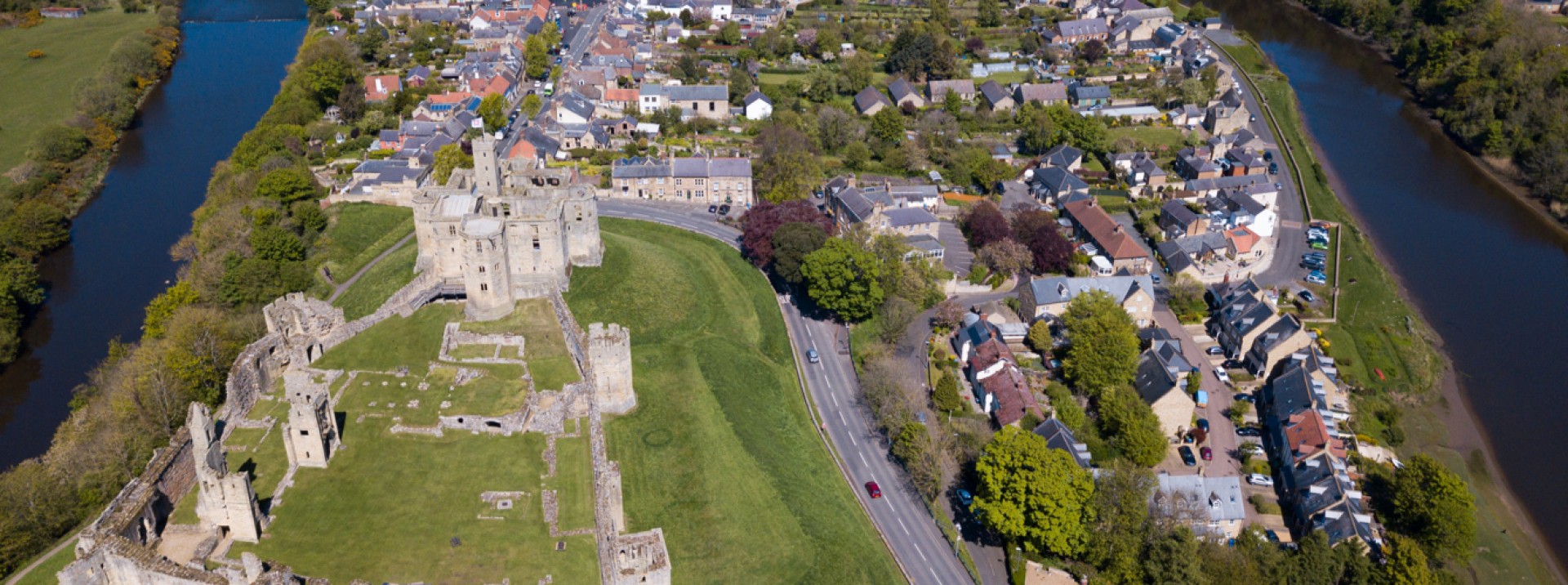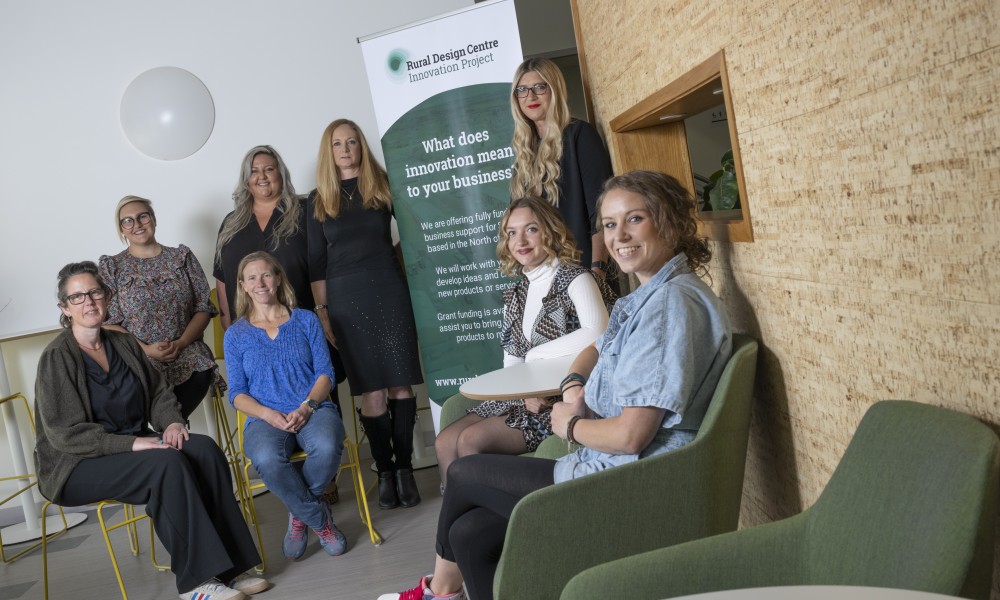
News and events

Rural communities demonstrating their resilience through innovation since the impact of the pandemic
A business support programme launched in October 2020, designed to support organisations to diversify and develop new products and services in response to rural challenges, has seen a remarkable level of resilience and innovation across the small business community as it recovers from the impact of the global pandemic.
The concept of the Rural Design Centre Innovation Project, delivered by Advance Northumberland in partnership with the Innovation SuperNetwork and Northumbria University, was developed by a range of rural stakeholders to understand business support and innovation activities in rural areas, using rural challenges as a catalyst to drive innovation and diversification across local organisations.
Working with such a wide mix of businesses across the region has meant that a number of innovation challenges with varying topics have been delivered. It has also enabled a huge social impact, an example of which is the Solar Village Halls Challenge, delivered in collaboration with the National Innovation Centre for Rural Enterprise (NICRE), which brought together 19 community organisations to address the challenge of escalating energy costs and the potential risks of closure of these important community spaces.
The solution identified was to assist in accessing funding to provide technical expertise to enable these buildings to become self-sufficient through the installation of solar panels on the roofs which would run electricity to batteries and then sell excess electricity back to the grid. This challenge is leading to the development of a community-benefit energy company and will have long-lasting impacts across the region. Among the challenges the team have delivered, those focusing on the development of creative assets of the county, have enabled further collaborations to form.
Ad Gefrin Design Challenge, Belsay Design Challenge and Hadrian’s Wall Digital Challenge brought forth an opportunity to showcase local talent as well as local places of interest and tourist attractions.
Each challenge was developed in partnership with the on-site team and delivered using a design-thinking model, with over 30 creative practitioners taking part across the challenges, six of whom were subsequently contracted as a direct supplier to the sites.
Focused on bringing together key stakeholders, businesses and households to work collaboratively, another extremely valuable challenge has been around the reality of day-to-day life for households living off-grid. As part of their Powerless People challenge a long-term collaboration between the project and Community Action Northumberland (CAN) was formed. The work done by the team, alongside CAN meant that information could be gathered about the issues attributed to being off grid, how day-to-day life was affected, what could be done short term, and how to work together to implement a long-term plan. During the course of this project, the team worked with a local business to provide specialist knowledge in the development and launch of a new service providing installation, maintenance and on-call facilities for home generator systems.
This is just one of 70 new services or products expected to be introduced to the market as a result of the innovation support from the team, as projected by an independent review of the delivery of the project.
The project has successfully supported 25 organisations to diversify through providing £85,000 of grant funding for a range of projects from copyright and patenting facilitation to the creation of an augmented reality for the promotion of our cultural heritage. Collaborations with other support providers has meant that challenge participants have been able to unlock significant investment and funding from other sources that would not otherwise have taken place.
As part of the Rural Catalyst partnership with the NICRE, two large-scale annual hybrid events took place, with nearly 300 people attending either Alnwick Garden in 2021 or Charlton Hall in 2022. The work undertaken by the project has garnered local, regional and national press coverage and the female-led team were recognised as one of High Life North’s most inspirational women of 2022.
Being a part of meaningful change in our local rural communities has been at the heart of this project and the work that has been delivered has helped to identify challenges and find solutions to a wide range of issues. A number of which have been worked through and brought to fruition and in some instances, the support provided has enabled the foundation to be laid for further work to be continued by those involved.
Latest news and events
 Tuesday 3rd February 2026
Discover the Green Future of Potland Burn
Tuesday 3rd February 2026
Discover the Green Future of Potland Burn
 Wednesday 21st January 2026
Hexham Event to Source Local Trades and Businesses
Wednesday 21st January 2026
Hexham Event to Source Local Trades and Businesses
 Monday 22nd December 2025
Work to start on major redevelopment of Richard Stannard House in Blyth Town Centre
Monday 22nd December 2025
Work to start on major redevelopment of Richard Stannard House in Blyth Town Centre
 Friday 12th December 2025
B&M Confirmed for Brand-New 19,000 sq. ft Store in Bedlington Town Centre
Friday 12th December 2025
B&M Confirmed for Brand-New 19,000 sq. ft Store in Bedlington Town Centre
